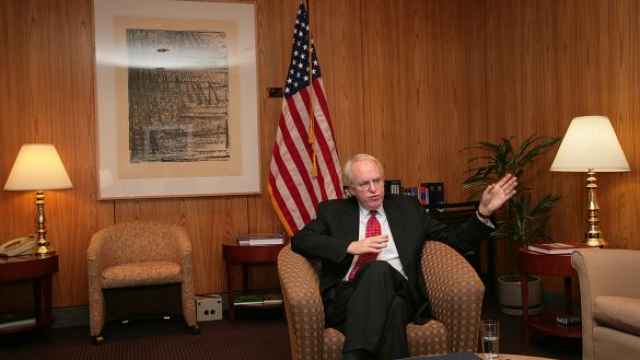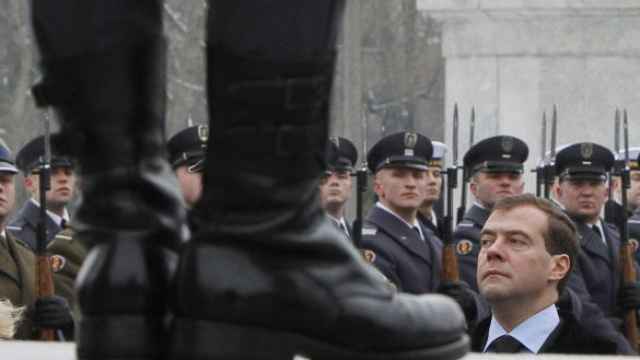Ties with Russia are improving, NATO's chief insisted Thursday, even as Foreign Minister Sergei Lavrov questioned the alliance's commitment to improving relations.
Secret U.S. diplomatic cables released by WikiLeaks disclosed that NATO secretly decided in January to draft a defense plan to cover NATO members Estonia, Latvia and Lithuania, which border Russia. U.S. diplomats cited in the documents asked for the plan to remain secret in order to avoid irritating Moscow.
Lavrov noted that the plans released on WikiLeaks originated in December 2009, when NATO and Russia were moving to mend ties strained by the 2008 war between Russia and Georgia.
"It raises a question when was NATO sincere — at a time when we openly discussed the development of our partnership, or when they were making quite different decisions between themselves?" Lavrov said in Moscow.
He said Moscow wanted some answers from NATO. "We think we are entitled to that," he said.
NATO Secretary-General Anders Fogh Rasmussen played down the controversy.
"We do not consider Russia a threat to NATO, nor does NATO present a danger to Russia," he said on the sidelines of European Union defense ministers' meeting in Brussels.
President Dmitry Medvedev attended the alliance's annual summit in Lisbon, Portugal, last month. The two sides agreed to boost cooperation in the Afghan war, and in their counter-narcotics and maritime anti-piracy efforts.
Fogh Rasmussen said NATO and Russia initiated work Wednesday on a previously agreed missile defense system. He also said an earlier agreement to expand NATO's overland supply route to Afghanistan via Russia had begun.
At Wednesday's meeting, Russia's ambassador to NATO, Dmitry Rogozin, repeated Russian concerns about the Baltic contingency plans and his hope that the alliance would annul them, while NATO reiterated its commitment to collective defense of its members, NATO diplomats said.
The U.S. diplomatic cables indicated that some East European nations were alarmed by the speed of Russia's victory over Georgian forces.
Within three days, Georgia's western-trained army had been expelled from a breakaway province and was withdrawing in disarray. Russian troops occupied parts of Georgia proper for several weeks before pulling out under an EU cease-fire plan.
NATO's plan for the defense of Poland and the Baltic states calls for the deployment of nine divisions in case of war, but does not identify the possible foe.
(AP, Reuters)
A Message from The Moscow Times:
Dear readers,
We are facing unprecedented challenges. Russia's Prosecutor General's Office has designated The Moscow Times as an "undesirable" organization, criminalizing our work and putting our staff at risk of prosecution. This follows our earlier unjust labeling as a "foreign agent."
These actions are direct attempts to silence independent journalism in Russia. The authorities claim our work "discredits the decisions of the Russian leadership." We see things differently: we strive to provide accurate, unbiased reporting on Russia.
We, the journalists of The Moscow Times, refuse to be silenced. But to continue our work, we need your help.
Your support, no matter how small, makes a world of difference. If you can, please support us monthly starting from just $2. It's quick to set up, and every contribution makes a significant impact.
By supporting The Moscow Times, you're defending open, independent journalism in the face of repression. Thank you for standing with us.
Remind me later.




